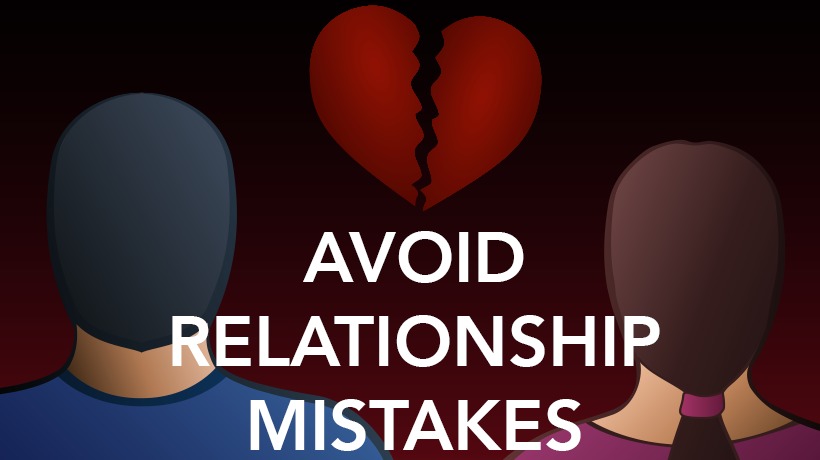Have you ever wondered why you keep making the same mistakes in relationships? Do you keep attracting the same type of partner? Perhaps you’ve noticed a pattern of what is causing your relationships to end. Psychotherapist Diane Barth, Ph.D., says you can’t do the same thing over and over and expect different results. So how can we stop repeating the same mistakes so we can finally be in the relationship we’ve been looking for? Here are some common mistakes and how we turn it around.
You have been too codependent with your partners.
Codependency tricks us into believing we are not whole without our significant other. Psychologist Susan Whitbourne says, “People who are anxiously attached become so clingy and dependent that they can drive their partners away through their excessive need for affection and reassurance.” People that are codependent suffer a lot when a relationship ends because they don’t just lose their partner, but they have lost a part of themselves.
Codependency can be hard to overcome. For many people, they need regular treatment on where it stems from and ways to break away from the behavior. There are some ways you can work on this yourself. Practice self-care by exploring your likes, dislikes, needs, and desires, becoming more aware of where YOU stand in a relationship. Try setting boundaries and practice being independent. Set a few nights a week to have some alone time. Book a class for something you’ve been interested in lately. Take little steps towards discovering yourself while you give your partner room to breathe.
The romance is gone and you want to give up.
One of the more common reasons a relationship ends is that one or both people feel like the spark is gone. Many of us want romance, so when we feel as though our partner isn’t putting in an effort anymore it can feel like the end is near. Try to realize that it takes two to have a relationship.
It is completely normal for a relationship to go through phases that aren’t as exciting. You both can become so comfortable around each other and sometimes you BOTH forget to put in the same kind of effort that you did in the beginning. Try doing something spontaneous for your partner. Surprise them with tickets to a band they like or send them a location for a surprise date after work. Don’t forget you also hold the power to rekindle the flame. Your partner would hopefully pick up on your efforts and do the same in return.
You have trouble communicating.
Marriage consultant, Melissa Orlov, stresses that communication must be practiced. According to Orlov, “You must learn how to express what you think constructively and without aggression, learn how to listen carefully and non-defensively, and use tools to verify that you are both talking about the same thing.” You shouldn’t assume this comes easily because even couples with the best communication have to put in the time to improve their skills.
You find yourself trying to change things about your partner.
If you find yourself asking yourself, “How do I get my partner to be more affectionate?” or “How do I get my partner to act more subdued around my family?”, then you are hoping to change them. We make the mistake of thinking, “My relationship with this person would be perfect if only they…” The problem with this is it keeps us in relationships we are not meant to be in longer than we should be. In a healthy relationship, you accept your partner for who they are, including their flaws, and not want them to change major characteristics about themselves. Hoping and waiting for someone to change for you is a surefire way to end up disappointed.
The repeated relationship mistakes we make differ with each person. Maybe you’re guilty of some that aren’t on this list. If so, focus on where you went wrong and then think of the areas you need to put in more effort, where you should have more patience and when it’s time to realize they might not be the person for you.
Disclaimers; This article is, in part, the opinion of the writer.
If you find yourself not being able to change old habits, you may want to consult a therapist.
Sources



